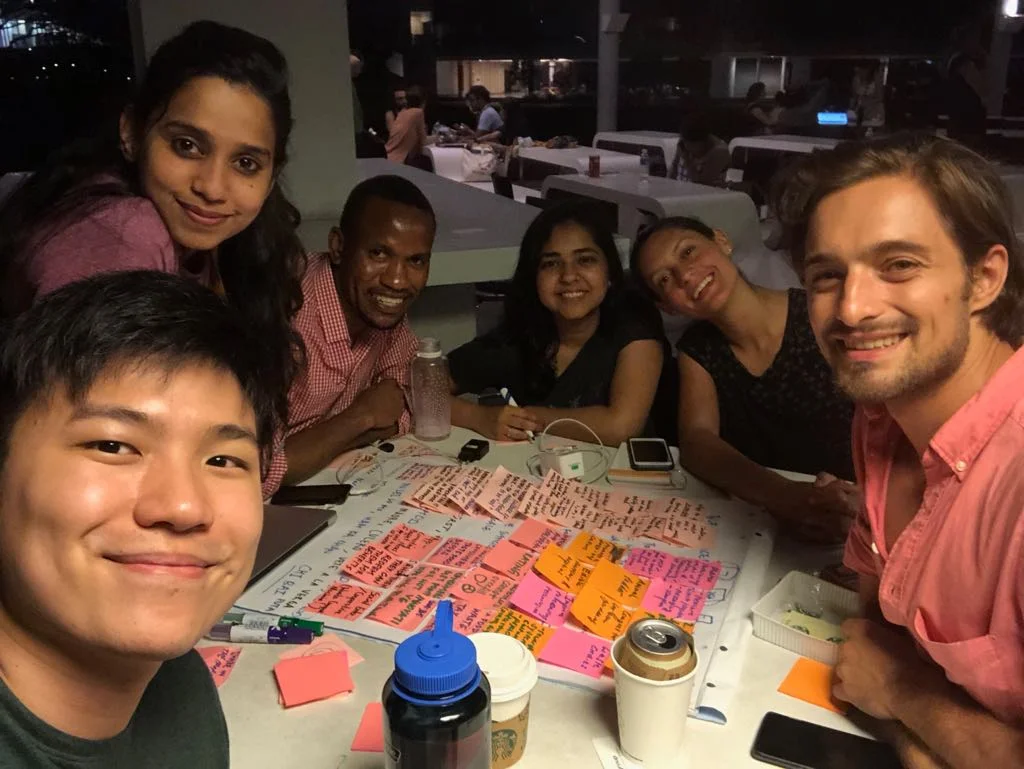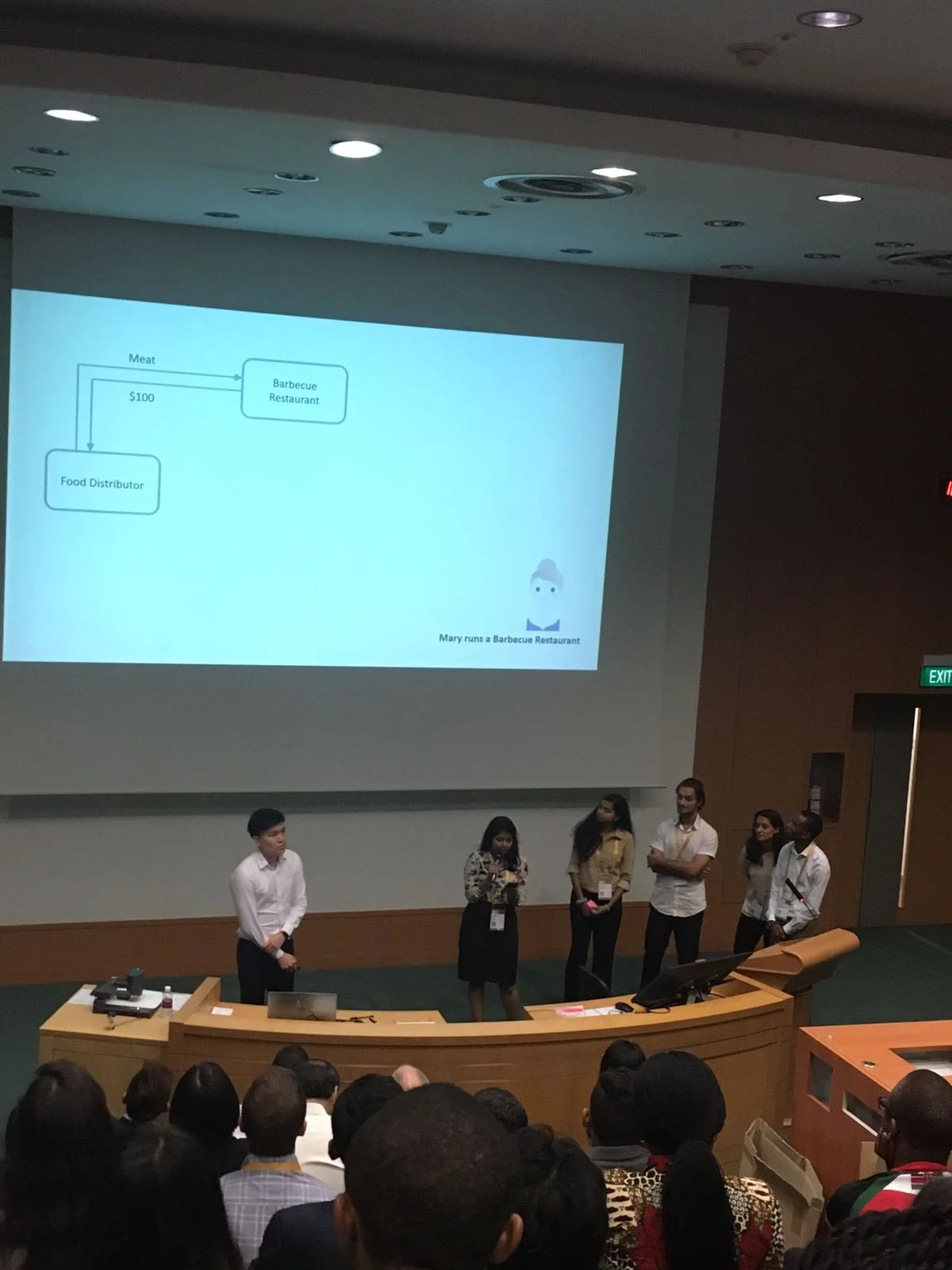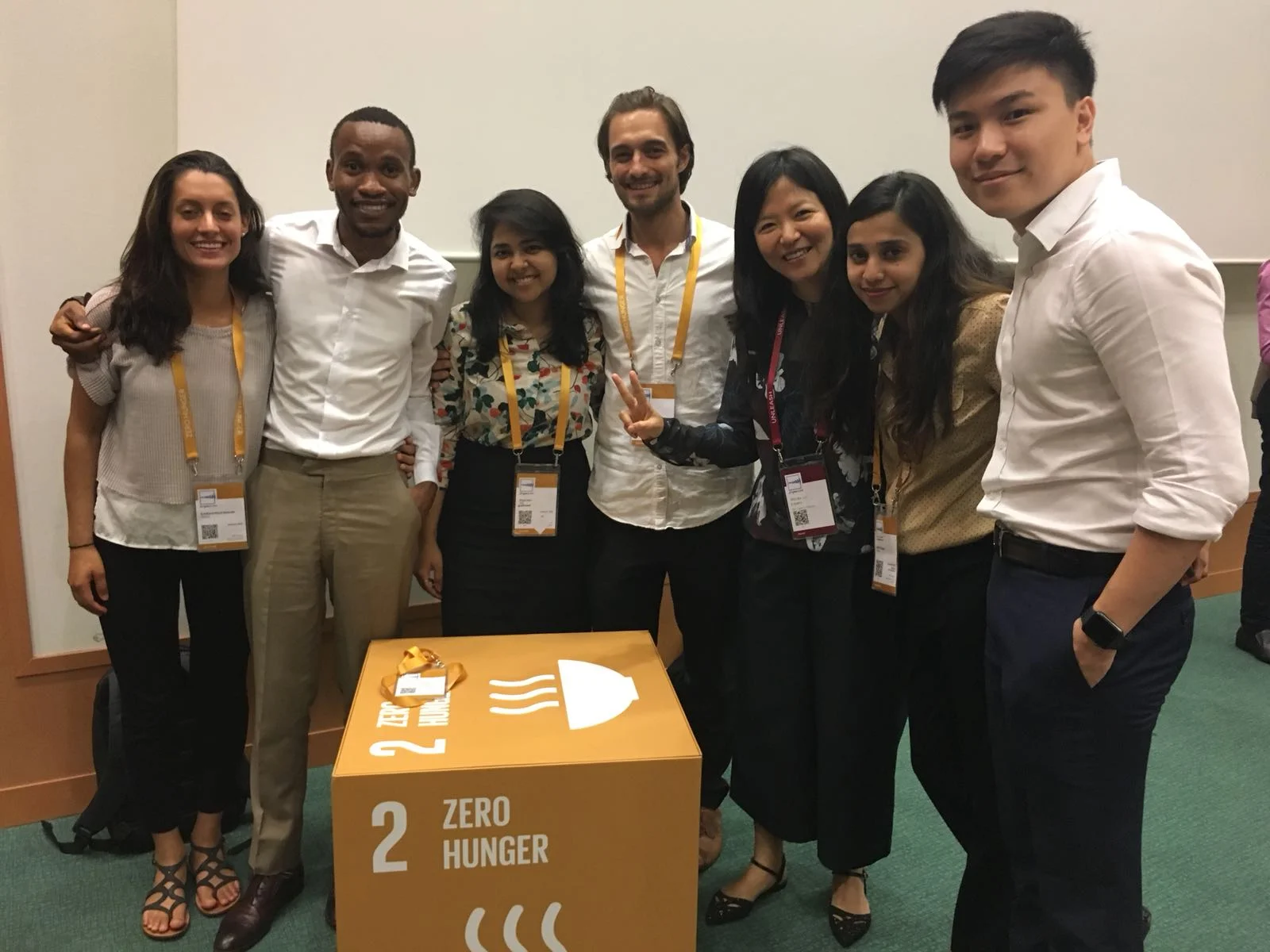UNLEASH —An Innovation Lab for the United Nations Sustainable Development Goals
ENTREPRENEURIAL PROJECT
As a Global Innovation Lab, UNLEASH gathers 1,000 talents (participants) annually to collaborate and develop solutions to meet the United Nations Sustainable Development (SDG) Goals. UNLEASH has taken place in Denmark, Singapore, Shenzhen, China, and India since 2017.
I was one of the 1,000 talents, chosen from around 8,000 applications globally. This innovation lab in 2018 was aimed at addressing 8 out of the 17 SDGs laid out by the UN. I worked for SDG 01 Zero Hunger, specifically, food waste management in developed countries. In a multicultural team of 6 over the course of 8 days, I worked rigorously towards problem definition, solutioning, and pitching business ideas to the investors and industry leaders.
In many ways, this experience shaped my interest and fueled my passion for utilizing my research and design thinking skills for social impact innovation. Sharing this enriching experience with 1000 more passionate individuals broadened my perspective on understanding struggles and strategies for social innovation.
CLIENT: Entrepreneurial Project
TEAM MEMBERS: Aditi Chopra (India), Benjamin Scholz (Germany), Estefania Marti Malvido (Mexico), Stephen Molatlhegi (Botswana), Wee Yang Lin (Singapore),
GUIDED BY: Dalberg Design Facilitators
MY ROLE: Design/Business Strategist
RESPONSIBILITIES:
Brainstormed and identified a hyper-local problem related to one of the 8 targets of the Zero Hunger SDG.
Collaborated with and took guidance from 7 subject matter experts within the bigger Zero Hunger squad.
As the only team member trained in Design Thinking, I guided my team of SMEs through the problem solving process laid out by Unleash and helped my team pass each “gate” successfully.
Designed creative solutions to address food waste problems and deliberated potential partnerships to implement the solutions.
Independently created a pitch deck and presented to an audience of ~400 Zero Hunger SMEs, experts, and investors.
OUTCOME:
Even though this project was not selected by the investors for further development, it was chosen for a demo at the end of the innovation lab. I presented and pitched the idea to numerous potential collaborators at my assigned booth.
I gained an elevated level of knowledge of barriers and strategies in the social innovation sector.
I also gained access to the global network of like-minded, passionate individuals working in the social impact space and designing breakthrough technologies and services.
Source: https://unleash.org/
The 1000 ‘talents’ from across the world are distributed across the 8 SDGs and then further broken down into teams based on the chosen TARGET are they want to work for within an SDG. The UN has done a great job of sub-dividing each goal into a number of targets to be achieved tackling various dimensions of the main goal.
The 17 UN Sustainable Development Goals-Goal 2: Zero Hunger . Source: https://unleash.org/
The challenge laid out by UN Secretary General . Source: http://www.un.org/en/zerohunger/challenge/
Why is addressing Food Waste important?
Source of stats: FAO
Food Waste is an extremely important problem to solve, for a number of reasons. These are also indicated in the TARGETS for this goal, but a few important ones are: Malnutrition, declining Agricultural practices, unsustainable disposal practices leading to overburdened landfills. and the most important— CARBON EMISSIONS. As these rates go up, it continues to contribute to the climate change.
For the next 6 days and nights, the teams follow a rigorous and creative problem solving method for innovation. The facilitators guide teams through the process and frameworks, and have regular check-ins to pass every STAGE GATE. This culminates in the teams pitching their ideas to the investors and global leaders, with many of the teams getting amazing opportunities and grants to work on their solutions further.
Our team tackled the food waste management problem in developed countries, taking Singapore as a proxy. Every day, restaurants generate a ton of food waste that never makes it to composting. We realized that some food waste generated by a restaurant could be a source for another restaurant, thus creating a marketplace for by-products.
The restaurant owners would be willing to try this system since they would be able to source their food for a cheaper price. There is also a way for the restaurants to gauge and plan ahead for their needs according to the market demand. The only issue to be taken care of would be the fact that these by-products are transported carefully in proper cold storage. Various logistical systems already in place could be leveraged to collaborate with and develop an organizational model to activate this system of food by-product marketplace.




























